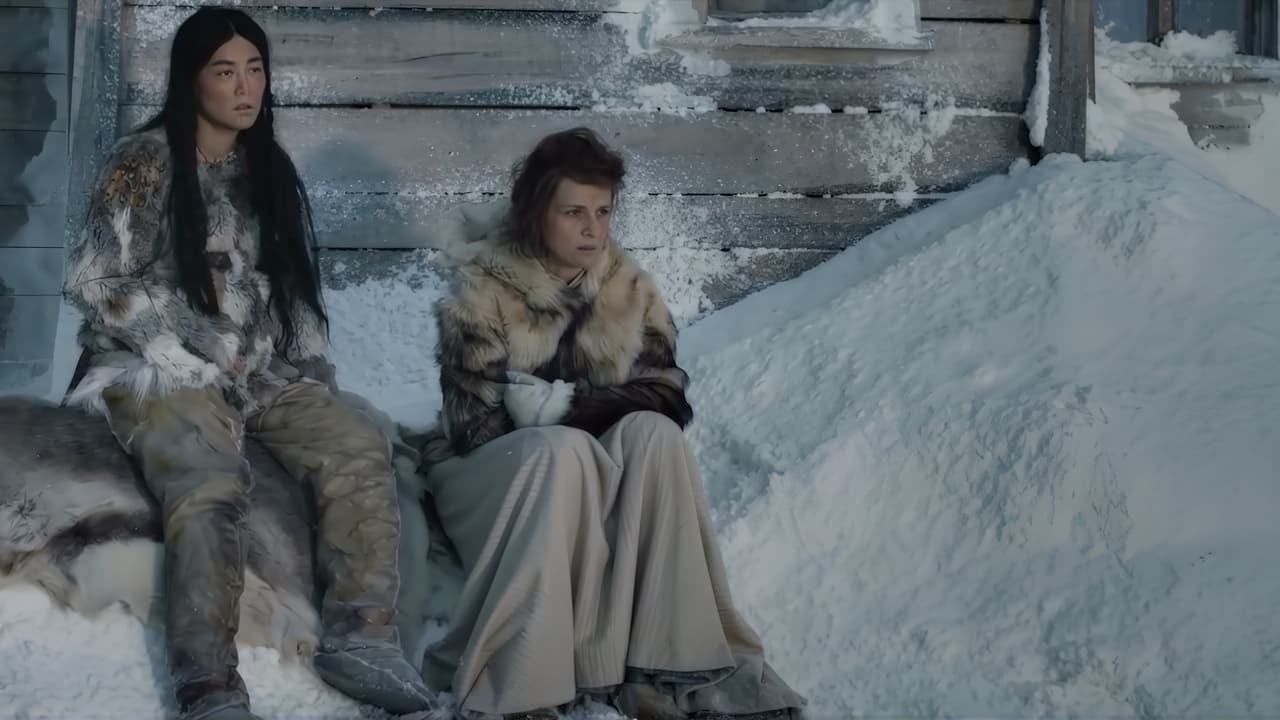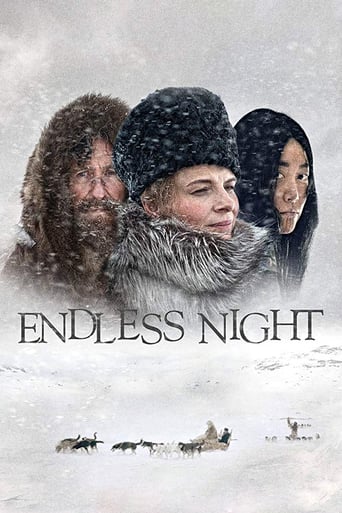Jeanskynebu
the audience applauded
Beystiman
It's fun, it's light, [but] it has a hard time when its tries to get heavy.
Sarita Rafferty
There are moments that feel comical, some horrific, and some downright inspiring but the tonal shifts hardly matter as the end results come to a film that's perfect for this time.
Winifred
The movie is made so realistic it has a lot of that WoW feeling at the right moments and never tooo over the top. the suspense is done so well and the emotion is felt. Very well put together with the music and all.
Benedito Dias Rodrigues
If this story isn't accurate is another problem,but what l did see in the movie is cold like the wind,Juliette Binoche playing a petulant wife trying to track down your famous husband who going to reach the north polo,the story is good but the middle to the end increase a little,the final scene when Allaka decided to stay due your son's death wasn't fully clear that happenings is true or not,because Allaka didn't able to tell his own story,about all remains is pretty decent production!! Resume:First watch: 2017 / How many: 1 / Source: DVD / Rating: 7
Blonde2291
This movie is about the survival attempts of two women - Josephine Peary (wife of Robert Peary who claimed to reach the north pole) and Aleqasina (an Inuit mistress of Robert Peary).Both women wait for Robert to come back from the north pole while icebound in the cruel and cold weather of the Greenland. Aleqasina (called Allaka throughout the movie) has a small igloo of her own, while Josephine enjoys the comfort and warmth of the wooden cabin.The movie shows both women alone and not a single soul around. But in reality, Josephine stayed in the cabin with her little daughter Marie. Aleqasina was also not alone, she was with her son (fathered by Robert Peary). According to the letters written by Josephine Peary, Marie and that little boy often played together in the wooden cabin. When Aleqasina fell ill, Josephine helped her and finally Aleqasina got better.The movie shows that Aleqasina dies in the end with her little baby - she wanders away into the terrible cold, never to see the Sun again.But in reality, she lived for many more decades after Robert Peary claimed to reach the north pole in 1908. she gave birth to three more children, including one more son fathered by Robert Peary. She died in 1930's.Both Juliet Binoche and Rinko Kikuchi have performed their roles beautifully. But the story is not based on facts and leaves the viewer clueless as to what they are trying to show in this movie.*** 3 stars only for the acting.
Ana Parrondo
I don't know whether the story was meant to be motivating or inspirational. Or maybe Coixet just wanted to portrait a strong woman. In any case, the film does not work. It feels sluggish with disconnected bits.Binoche might be a great actress, but as we know, good actress do not save bad directing/scripting. Just having cute dogs in a beautiful landscape is not too much stuff for a film.Putting Rinko Kikuchi (a Japanese) as an Inuik can only be seen as funny. It resembles the times past were they would paint a white guy red to cast him as native American.
Alex Deleon
NOBODY wants The Night, or Binoche Queen of the North. Original Spanish title "Nadie Quiere la Noche"The 65th Berlin Film Festival opened with two portraits of obsessed women in life threatening wasteland situations, Portrayed by international superstars, respectively Juliet Binoche in "Nobody Wants the Night" and Nicole Kidman in Werner Herzog's "Queen of the Desert". In the first Binoche portrays the wife of Commander Peary who was lost in the far north seeking to be the first man to reach the North Pole. His wife (an austere aging Binoche) sets out to find him defying all sorts of insanely threatening situations while her Eskimo team strongly advises against carrying on in the barren Arctic white desert where only polar bears are at home --what happens to her at the end of this harrowing trip through the Arctic wasteland I only found out later because, like many others in the audience, I felt compelled to leave long before her tedious ordeal was over. The walkouts from this opening night packed house crowd at the Friedrichstadt Palast started at around the thirty minute mark and soon became a steady flow. (Ps: After getting herself isolated somewhere in Greenland she was eventually saved by an Inuit-Eskimo woman played by a Japanese actress, and, oh yes, veteran Arctic guide Gabriel Byrne perished early on when the ice gave out under his feet... ) That was the festival opening film directed by Catalan femme director Isabel Coixet (pronounced Kwashet) a Berlin favorite and regular. NOT the best possible opening choice from an audience perspective, but fest director Dieter Kosslick has his own private priorities.Bottom line: Binoche looks great but doesn't cut the ice in this one. Give it three stars for the dogs and the scenery.

